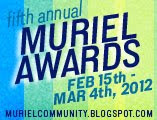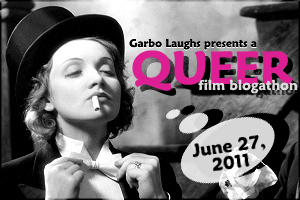Ben Affleck's Argo (2012) takes on the Iranian hostage crisis from a clever and engaging point of view. In January of 1980, the CIA conceived of a fake Canadian sci-fi movie that would be scouting locations in the middle east. The movie would never be made, because the aim of the production was to get into Tehran and escape with six American foreign service workers who had escaped the seizure of the American embassy and who had hidden in the house of the Canadian ambassador. The Iranians, for their part, know that six people escaped the embassy and are on a constant watch for them. The film itself is simultaneously an espionage thriller and a droll send-up of the movie business.
The central figure in the film is Tony Mendez, who specializes in getting people out of hostile countries. When given a list of problematic solutions he conceives of the so called "Hollywood option," and to that end, he makes some contacts in the movie industry. The first person he contacts is John Chambers, the make-up man behind the Planet of the Apes films. Chambers is amused by Mendez's scheme and suggests that Mendez will fit right in in Hollywood. Chambers introduces Mendez to embittered producer Lester Siegel, and together, the three of them option a cheezy sci-fi screenplay for a movie called "Argo" and set up a production office. They sell the film as if they are actually going to make it, taking out an ad in Variety, staging a reading, and commissioning a poster and storyboards. Meanwhile, Mendez's superiors are leaning toward having the six "houseguests" (as the Canadians call them) escape to the Turkish border on bicycles (in the dead of winter). Mendez himself goes to Tehran as a "moses." In Tehran, he must deal with his shadow from the Ministry of Culture and with the lack of faith shown in him by his six charges, who are understandably terrified. While in Tehran, Mendez is compelled to go through the motions of scouting locations while he preps his charges to leave. Meanwhile, the Iranians are getting closer and closer to identifying the fugitive diplomats.
As I was watching Argo, I was struck by how it gets away with the kind of self-referential in-jokes that usually make for an insufferably smug film when Hollywood turns its cameras on itself. It comes by this cultural awareness honestly--watching Battle for the Planet of the Apes on late night television is a legit plot point, after all--and succeeds in incorporating its various references and cameo characters by virtue of its structure as a thriller rather than as a satire. It works as a satire, too, and the scenes where it wallows in the absurdity of Hollywood defuse what might otherwise be an dire, joyless thriller. Affleck has chosen to film this story in the style of a 1970s thriller (to the point where the Warner Brothers logo on the front of the film is the stylized "W" from the late seventies) and in its form as in its content, it uses other films as touchstones. Most of this is done in the name of historicity, a point the movie enforces during the end credits when frames from the movie are matched with photographs of the participants and of the events in question. Its passion for accuracy is laudable, I guess, but it's secondary to the movie itself.
This film's main downside is that an audience who knows how it turns out (the six Americans famously escaped) might be less involved than otherwise. Affleck and company have to make the "how" compelling. Fortunately, the story itself is funny and unfamiliar (having been classified until 1997). Certainly, watching Alan Arkin and John Goodman play off each other as Siegel and Chambers, respectively, could sustain a movie by itself. Affleck, it seems, doesn't trust this, and amps up the suspense quotient of the film by crosscutting between the discovery of the identities of the six diplomats on the part of the Iranians and the race to get them on a Swiss Air flight out of Tehran. Its during these scenes that the film is at its most conventional. It's the sort of thing you've seen before. The film is on firmer ground when it's documenting the mores of Hollywood circa 1980, when everyone and their brother was racing to make a Star Wars rip-off. The studio system was in full-on collapse at the time, and this movie makes some hay out of that in Siegel's scathing response to the writer who balks at Siegel's attempt to option his screenplay. Siegel reminds me a bit of Rip Torn's character on the Larry Sanders Show: he's a foul mouthed pragmatist who doesn't sugarcoat anything. "Argo-fuck yourself" turns into the production's catch phrase, mostly through Siegel's repeated use of it.
This is probably going to win awards at the end of the year, and I don't begrudge that. It's a good movie, though not a profound one. It doesn't cut deeply into Hollywood (like a Sunset Boulevard or a Player), nor does it dig deeply into the existential terrors of espionage. This is partially due to Affleck's own limitations as an actor (though for this film, he's perfectly adequate for what he's asked to play). One wonders what this film might have looked like with a more compelling lead performance. One wishes, too, that the movie could have expanded on the idea that film is a global lingua franca, something it touches on briefly as our heroes are trying to make it to their plane. The Revolutionary Guardsmen at the airport are enchanted with the operation's production designs. One can almost see them turning into fanboys.
I'm taking a couple of days off blogging the October Challenge in order to keep from burning out (I've actually had a work project that's been keeping me busy, too). I've kept up with watching movies, though. I revisited last year's Super 8 yesterday. I don't have significantly more to say about it than I did last summer, so I'll let that stand. I also revisited Mario Bava's Baron Blood (which I hardly remembered) and Sergio Corbucci's Castle of Blood (which seems vastly different than the film I saw twenty years ago). I'll probably write about both of those films at the end of the month.
Current tally: 20 films.
14 first time viewings.



















No comments:
Post a Comment